The New Era of Cosmetic Surgery for Women
In recent years, female cosmetic surgery has evolved beyond dramatic transformations toward a more holistic, well-being-centered approach that prioritizes natural aesthetics and mental health. This shift reflects deeper societal changes, merging advanced technological innovations with an increased awareness of psychological and emotional well-being. Women today seek cosmetic procedures that enhance their unique features, promote self-confidence, and integrate seamlessly with their overall health. This article explores the latest trends, motivations, societal influences, and holistic advances shaping the future of female cosmetic surgery focused on well-being.
<!-- VIDEO:eyJsaW5rIjoiaHR0cHM6Ly93d3cueW91dHViZS5jb20vd2F0Y2g/dj14ek5uNVZZNnpFdyIsImltYWdlVXJsIjoiaHR0cHM6Ly9lbmNyeXB0ZWQtdnRibjAuZ3N0YXRpYy5jb20vdmlkZW8/cT10Ym46QU5kOUdjU0JweW9Vb2ptVXBlZzRXeDVqMlRHZ1JVQW9pN2QtZS1xeDZBIiwidGl0bGUiOiJUb3AgVHJlbmRzIEluIFdvbWVuJ3MgSGVhbHRoICYgVGhlIEZ1dHVyZSBPZiBDb3NtZXRpYyAuLi4iLCJzbmlwcGV0IjoiVG9wIFRyZW5kcyBJbiBXb21lbidzIEhlYWx0aCAmIFRoZSBGdXR1cmUgT2YgQ29zbWV0aWMgU3VyZ2VyeT8gZnQuIERyLiBEYWlzeSBBeWltIEVwMTg5LiAxLjNLIHZpZXdzIMK3IDkgbW9udGhzIGFnbyAuLi5tb3JlwqAuLi4ifQ== -->Current Trends Emphasizing Natural Appearance and Personalized Aesthetic Enhancement
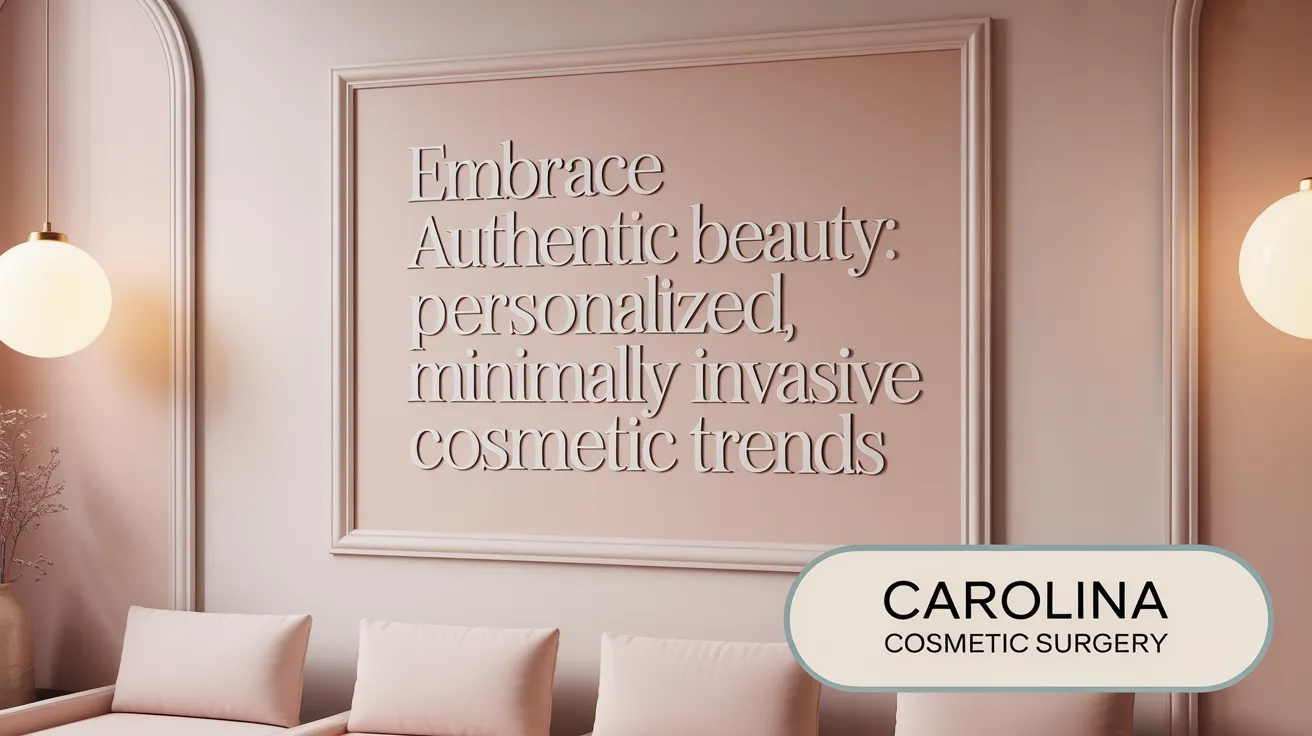
What are the current trends in female cosmetic surgery that emphasize well-being and a natural appearance?
In recent years, the emphasis in female cosmetic surgery has shifted toward achieving results that are subtle, harmonious, and authentic to the individual. Patients now prioritize enhancements that improve their confidence without compromising their natural features.
A prominent trend is the focus on minimally invasive procedures. These techniques, such as small breast implants and natural-shaped implants, allow for smoother recoveries and less visible scarring while creating a balanced look that aligns with a person’s unique body shape.
Non-surgical and tissue-based options, like fat transfer and platelet-rich plasma (PRP) treatments, are increasingly popular. These methods enhance facial contours and skin quality naturally, avoiding dramatic changes and emphasizing a more youthful, refreshed appearance.
Advanced technological tools like 3D imaging and virtual reality simulations help in detailed preoperative planning. This personalization ensures that each patient’s treatment plan is tailored to their individual aesthetic goals, resulting in results that look organic and are proportionate.
Alongside traditional cosmetic procedures, there is a growing focus on skin health. Techniques using laser, ultrasound, and radiofrequency technologies aim to promote collagen production, tighten skin, and rejuvenate without surgical intervention. These approaches support the overall goal of natural beauty enhancement.
Another trend sees a move toward smaller implants and more natural shapes, especially in breast surgery. Patients favor options that provide volume and form without an overly “augmented” look, aligning with a desire for authenticity.
Finally, regenerative therapies, which harness the body’s own tissues and cells, are gaining interest for their potential to regenerate skin and soft tissues, reducing signs of aging and improving skin texture in a natural way.
Overall, contemporary female cosmetic surgery aims to boost self-esteem and well-being through personalized, minimally invasive treatments that emphasize natural beauty and individual authenticity.
Psychological and Mental Health Considerations in Cosmetic Surgery Decisions
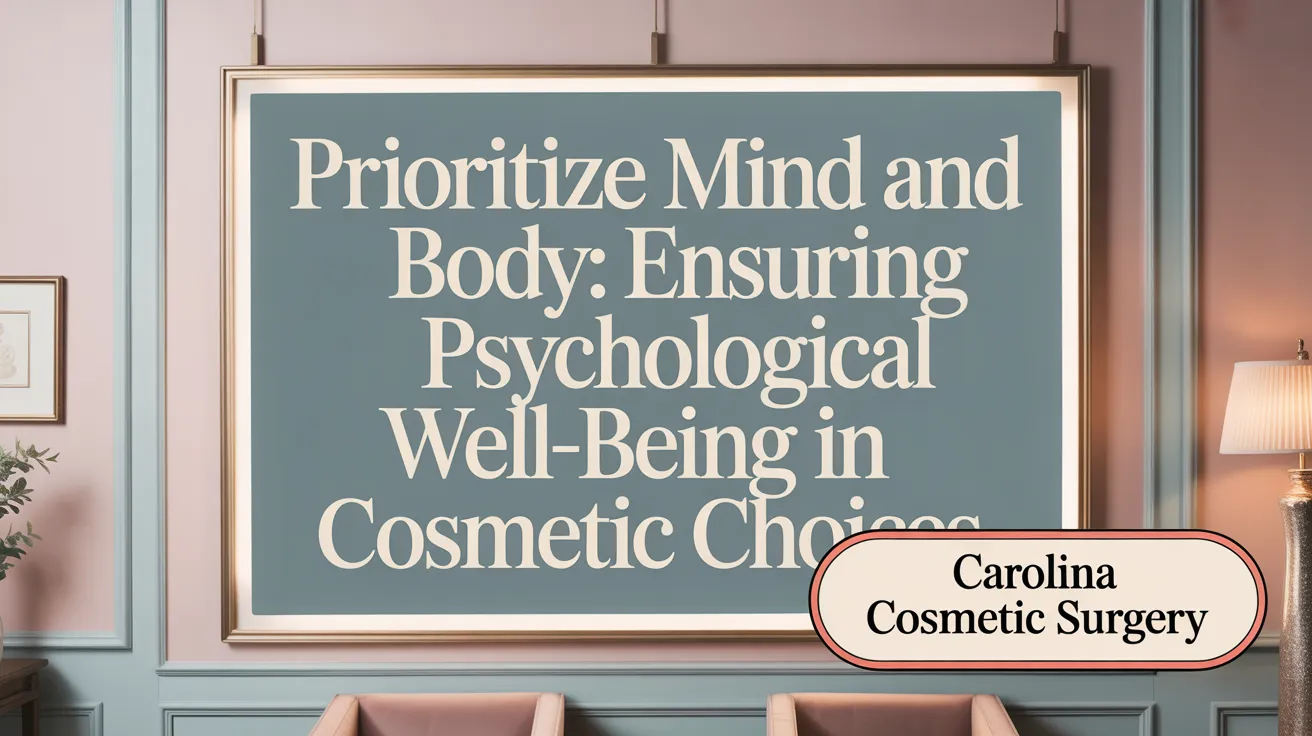
How do psychological and mental health considerations affect women seeking cosmetic surgery?
Mental health plays a significant role in the decision-making process for women considering cosmetic procedures. Many women who pursue aesthetic enhancements face underlying issues such as body dysmorphic disorder (BDD), depression, anxiety, or low self-esteem. These pre-existing conditions can influence their motivations, expectations, and satisfaction levels post-surgery.
Women with high dissatisfaction with their body image or a history of emotional trauma may be more vulnerable to experiencing dissatisfaction or even worsening mental health after procedures. For example, while some women report increased confidence and reduced anxiety following surgeries like tummy tucks or breast lifts, others, especially with underlying psychological concerns, may experience regret or emotional distress.
Research shows that cosmetic surgery can sometimes serve as a tool to boost self-esteem and reduce feelings of social anxiety. However, it also carries risks if psychological issues are not properly addressed beforehand. Women with pre-existing mental health conditions or body image disorders might experience an increase in suicidal thoughts or depression if their expectations are not managed effectively.
Therefore, it is crucial to incorporate mental health evaluations into the surgical planning process. Proper screening helps identify women at risk of postoperative dissatisfaction and emotional complications. Engaging mental health professionals can ensure that procedures are undertaken for the right reasons, with realistic expectations, and support healthy psychological outcomes.
Ultimately, ensuring psychological well-being before surgery not only enhances physical results but promotes a balanced approach to beauty and self-acceptance, reducing the likelihood of dissatisfaction or emotional distress afterwards.
Societal, Cultural, and Social Media Influences Shaping Female Cosmetic Surgery
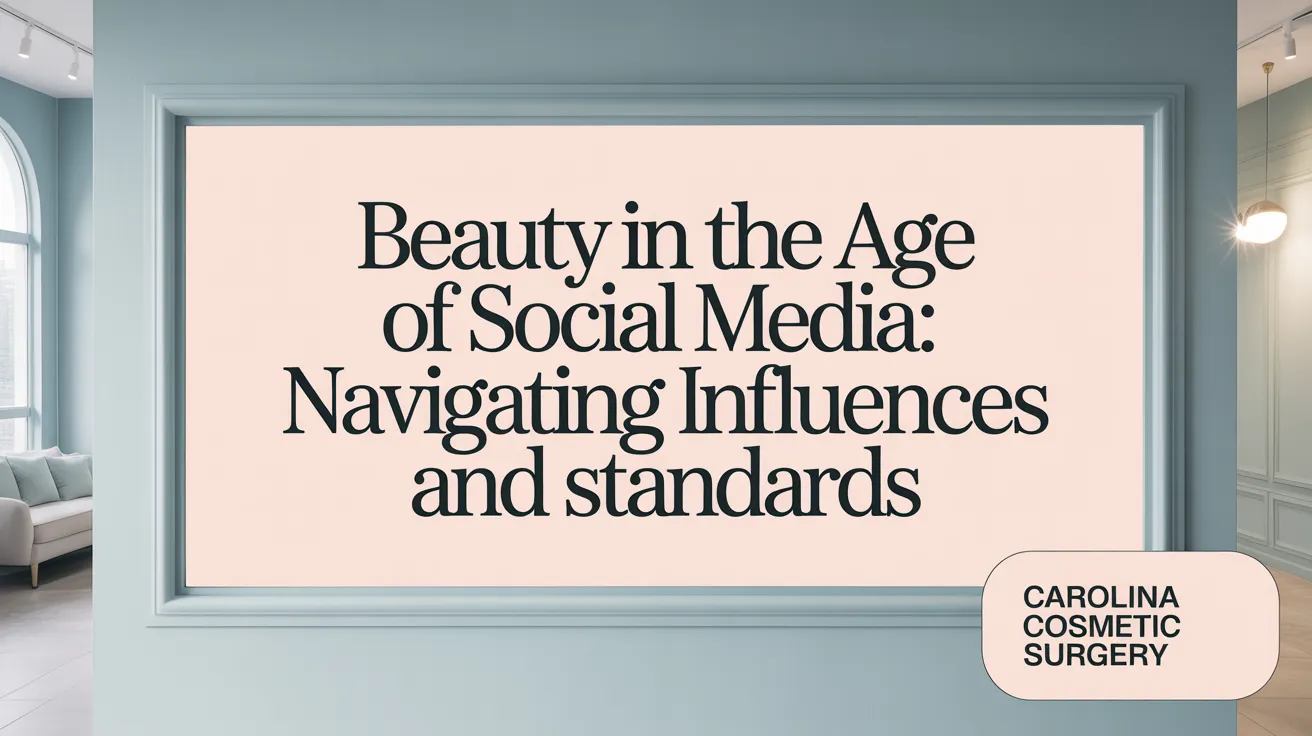
How do societal, cultural, and social media influences shape trends in female cosmetic surgery?
In today's digital age, social media platforms like Instagram, Facebook, and Snapchat play a major role in shaping beauty standards among women. These platforms are filled with highly curated images, many of which use filters and editing tools to enhance appearance. As a result, women are constantly exposed to idealized beauty images, often featuring small noses, full lips, sharp jawlines, large eyes, and high cheekbones.
This exposure contributes to social appearance anxiety, where women feel pressure to look perfect and camera-ready all the time. The popularity of selfie culture encourages frequent photo-taking and sharing, which can amplify feelings of inadequacy and dissatisfaction with one's natural appearance. Many women compare themselves to these idealized images, which can lead to a desire for cosmetic procedures in an effort to mirror these beauty ideals.
Celebrity and influencer endorsements add further influence. When well-known personalities like Kylie Jenner openly share their cosmetic procedures, it often triggers a trend for similar treatments among their followers. These endorsements serve as social validation and influence individual decisions to undergo procedures such as lip augmentation, rhinoplasty, or facelifts.
Cultural norms and peer pressure also sustain these beauty standards. In some societies, there is an increased emphasis on youthful, flawless appearances, making cosmetic surgery seem like a normal and accessible way to meet those expectations.
Responsible use of social media, along with movements advocating for diverse beauty standards, helps to slowly counteract this pressure. Still, the interconnected factors of media, celebrity influence, and peer comparison reinforce the normalization of cosmetic procedures, especially among women eager to conform to prevailing beauty ideals.
Motivations Driving the Rise in Cosmetic Procedures Among Women
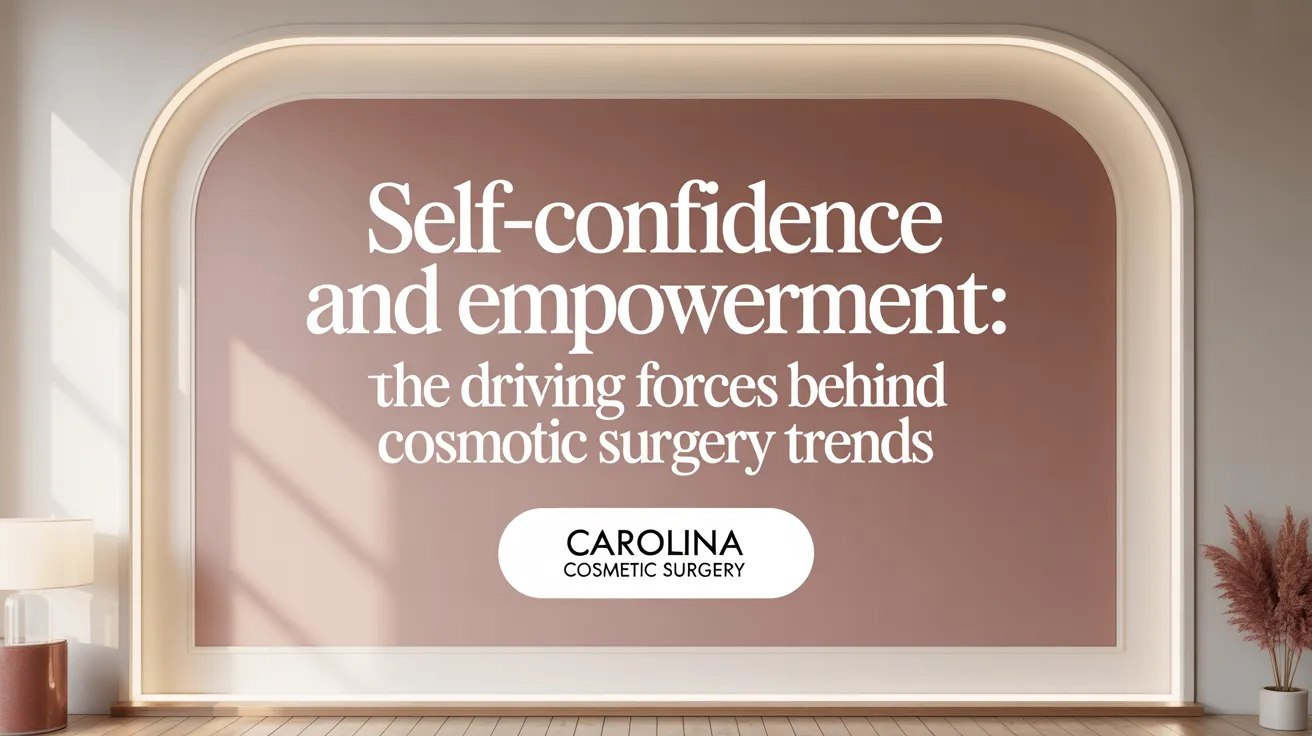
What motivates the growing popularity of cosmetic procedures among women?
The increasing number of women opting for cosmetic surgery is largely fueled by a desire to boost self-confidence and improve self-esteem. Many see aesthetic enhancement as a pathway to feeling better about their appearance and, in turn, experiencing greater social and personal satisfaction.
Societal and cultural pressures play a significant role. Expectations around femininity and youthful beauty often push women toward procedures that help them meet these ideals. The media, including social platforms, reinforce specific beauty standards—such as small noses, full lips, and sharp jawlines—that many women aspire to emulate.
Targeted advertising and image-driven social media content exaggerate these beauty ideals, creating a sense of urgency and aspiration. The impact is especially strong among women experiencing physical changes due to life events like pregnancy, aging, or weight loss. Such changes may diminish self-esteem or create dissatisfaction with body image, prompting women to seek surgical solutions.
Beyond societal pressures, the view of cosmetic surgery as a form of self-care and empowerment has grown. Many women now see these procedures as tools to take control of their appearance and enhance their overall well-being.
Despite these motivations, barriers like financial costs, personal beliefs, and cultural or religious restrictions may influence decisions differently among individuals. Nonetheless, the overarching trend reflects a societal shift where appearance-related enhancements are often seen as integral to personal development and confidence.
| Motivation Factors | Examples | Additional Notes |
|---|---|---|
| Self-confidence and self-esteem | Feeling more attractive | Leads to social and professional benefits |
| Societal beauty standards | Youthfulness, slimness | Media and advertising amplify these ideals |
| Life changes | Post-pregnancy, aging, weight loss | Physical changes impact body image |
| Self-care and empowerment | Taking control over appearance | Viewed as proactive health and wellness measure |
| Barriers | Cost, cultural beliefs | May limit access or decision-making |
The trend highlights how societal expectations, media influence, personal experiences, and individual empowerment converge, motivating women to pursue cosmetic procedures as a form of self-affirmation and social alignments.
Innovations and Holistic Approaches Enhancing Cosmetic Surgery Experiences
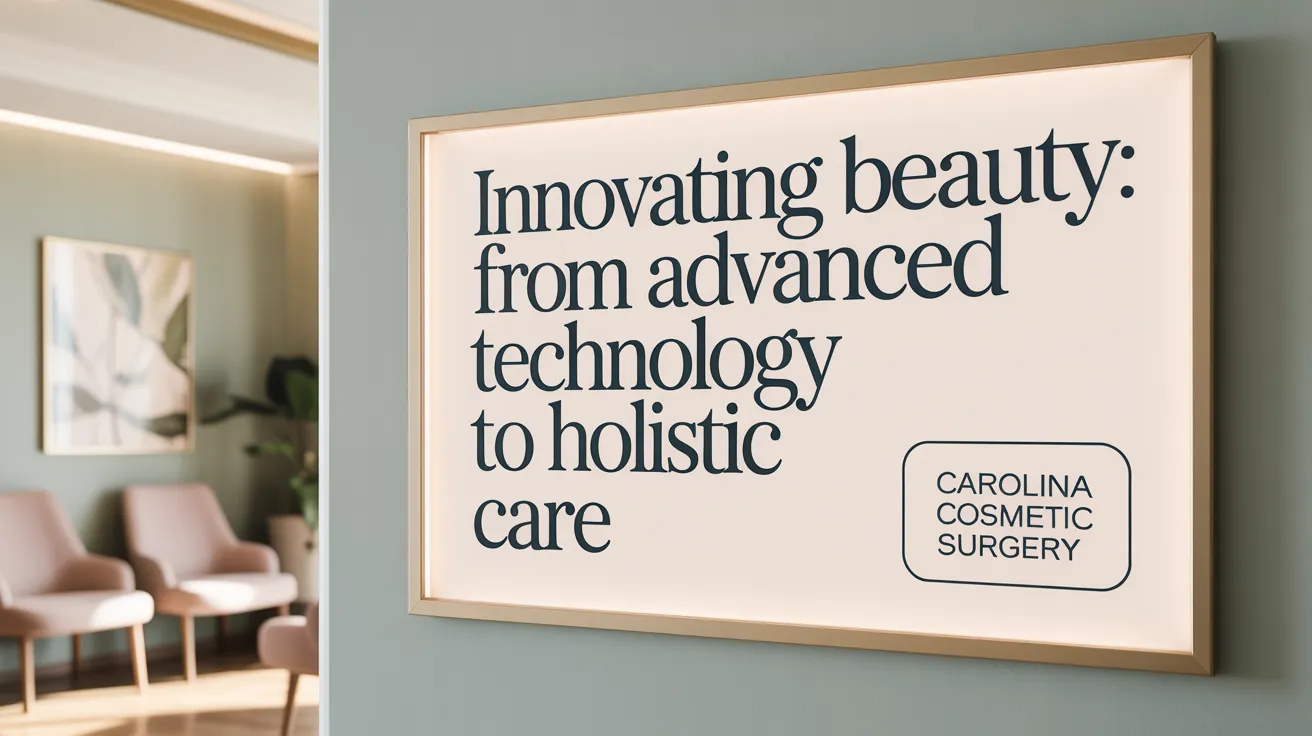
What are some recent innovations and holistic approaches in female cosmetic surgery?
The field of female cosmetic surgery has witnessed remarkable progress in recent years, driven by technological advances and a growing emphasis on comprehensive patient care. One of the most notable innovations is the incorporation of advanced imaging technologies such as three-dimensional (3D) imaging and virtual reality (VR) simulations. These tools allow surgeons and patients to visualize expected outcomes preoperatively, improving communication and setting realistic expectations.
Artificial intelligence (AI) has also begun to play a role in surgical analysis and planning. AI algorithms help analyze facial symmetry, predict surgical results, and personalize procedures, making them more effective and tailored to individual features.
Minimally invasive techniques are transforming the landscape of cosmetic procedures. Laser therapies, radiofrequency skin tightening, and nonsurgical facelifts provide natural-looking results with less downtime and reduced risk. Injectable treatments like dermal fillers and fat transfer procedures, including fat transfer breast augmentation and facial volume restoration, are increasingly popular for their effectiveness and natural appearance.
Regenerative medicine is gaining traction as well. Platelet-rich plasma (PRP) treatments harness the body’s own growth factors to stimulate collagen production, improve skin texture, and encourage tissue regeneration. Stem cell therapies further enhance natural tissue repair, offering promising avenues for long-lasting rejuvenation.
Holistic approaches in cosmetic surgery now focus beyond just the physical outcome. Integrating mental, emotional, and physical health into treatment plans helps improve overall well-being. Pre- and post-surgical counseling, lifestyle modifications, and skincare routines are emphasized to support emotional resilience and natural beauty.
Furthermore, the advent of personalized anti-aging treatments based on genomic medicine is emerging. These targeted therapies aim to address the biological processes of aging at the molecular level, representing a new frontier in customized aesthetic care.
Overall, these innovations and holistic strategies reflect a shift toward less invasive procedures, natural results, and a broader focus on overall health, ensuring patient satisfaction and emotional well-being are prioritized in the modern cosmetic surgery landscape.
Impact of Cosmetic Surgery Trends on Women's Self-Confidence and Mental Health
How do cosmetic surgery trends impact self-confidence, well-being, and mental health in women?
Cosmetic surgery has become a popular way for women to enhance their appearance, and many experience a boost in self-confidence afterward. Procedures like breast augmentation, rhinoplasty, and facelifts often help women feel more attractive, which can improve their mental health and social interactions.
Research reveals that most women who undergo these procedures report high satisfaction, feeling less anxious and more positive about their lives. These results suggest that, when done with realistic expectations, aesthetic surgeries can contribute to better self-esteem and overall happiness.
However, the effects are not the same for everyone. Women with underlying issues such as body dysmorphic disorder or those who seek surgery due to societal pressures may not experience lasting emotional benefits. Instead, they might face dissatisfaction or even pursue multiple procedures, which can be harmful.
The influence of social media also plays a significant role here. Platforms like Instagram promote certain beauty ideals—small noses, plump lips, sharp jawlines—that can lead to body dissatisfaction. Heavy exposure to idealized images often causes women to compare themselves unfavorably, fueling appearance anxiety and self-doubt.
Therefore, the mental health impact of cosmetic surgery largely depends on how well expectations are managed. Consulting with qualified professionals, undergoing psychological screening, and fostering self-acceptance are essential steps. When combined with a balanced mindset and realistic goals, cosmetic procedures can serve as tools for improving confidence and mental well-being.
In summary, while cosmetic surgery can positively influence women's mental health when approached correctly, it also necessitates careful consideration of underlying self-esteem issues and societal influences to ensure lasting psychological benefits.
Emerging Concepts: Cosmetic Surgery as Part of a Broader Well-Being and Self-Care Lifestyle
How are cosmetic procedures integrating with wellness and self-care trends?
Today, many individuals view cosmetic surgery as part of a holistic approach to health, emphasizing mental, emotional, and physical well-being. Advances in technology allow for minimally invasive options like laser treatments, radiofrequency therapies, and injectables, all designed to enhance appearance with less downtime. This shift underscores a broader self-care mindset, blending aesthetic improvements with overall health.
What are the trends in mommy makeovers and midlife rejuvenation?
Mommy makeovers include procedures such as tummy tucks, breast augmentation, and liposuction, tailored to help women regain confidence post-childbirth. Similarly, midlife rejuvenation, or 'menopause makeover,' combines facial treatments, body contouring, and breast surgeries to address aging changes. These strategies support individuals seeking to feel vibrant and renewed at different life stages.
How is body positivity influencing the perception of beauty?
The movement towards body positivity encourages acceptance of diverse body types and personal uniqueness. While cosmetic procedures can boost confidence, there is an increasing emphasis on enhancing natural features with personalized, non-standardized aesthetics. This trend aims to promote self-esteem without conforming to societal beauty ideals.
What is the role of post-weight loss surgeries and non-invasive skin tightening?
As rapid weight loss medications like semaglutide grow in popularity, there’s rising demand for skin tightening treatments and body lifts to remove excess skin. Non-invasive procedures using ultrasound, laser, and radiofrequency are expected to be especially popular in 2025 for their safety and convenience, helping individuals achieve toned results without surgery.
How are male aesthetic procedures expanding?
A noticeable shift towards male-specific treatments includes high-definition liposuction, gynecomastia surgery, and facial rejuvenation procedures. More men are seeking to enhance their appearance to attain a more athletic or masculine look, reflecting widened social acceptance and inclusivity in cosmetic surgery.
What ethical considerations and psychological support programs are emerging?
With the rise in cosmetic procedures, especially among younger populations influenced by social media, practitioners emphasize preoperative psychological screening and body positivity programs. These initiatives aim to reduce dissatisfaction, prevent unrealistic expectations, and promote healthy perceptions of self-image.
| Trend | Popular Procedures | Related Focus |
|---|---|---|
| Wellness & Self-Care | Minimally invasive treatments, holistic health integration | Mental health, stress reduction |
| Post-Weight Loss & Skin Tightening | Body lifts, skin tightening, non-invasive treatments | Excess skin removal, improved skin firmness |
| Middle Age Rejuvenation | Facelifts, breast surgery, body contouring | Addressing aging, midlife confidence |
| Male Aesthetic Growth | Liposuction, gynecomastia, facial procedures | Gender inclusivity, enhanced masculinity |
| Ethical & Psychological Support | Screening programs, body positivity initiatives | Mental health support, realistic expectation setting |
This comprehensive approach to cosmetic surgery emphasizes personal empowerment and well-being, aligning aesthetics with health and self-acceptance, fostering a more inclusive and healthy beauty culture.
Looking Forward: Cosmetic Surgery in the Age of Well-Being
Female cosmetic surgery is undergoing a transformative shift toward procedures that honor individuality, promote psychological health, and align with holistic well-being. Innovations in technology and regenerative medicine, combined with greater attention to mental health and the impact of social media, have redefined aesthetic goals. Women today pursue cosmetic enhancements not simply for external validation but as empowered choices toward self-confidence and personal authenticity. The growing integration of mental, emotional, and physical care reflects a balanced future for cosmetic surgery — one where natural beauty, self-acceptance, and overall wellness take center stage.
References
- Inner beauty meets outer confidence
- Unlocking Confidence: The Top Trends in Cosmetic ...
- 7 Cosmetic and Aesthetic Trends to Keep Your Eye on in ...
- The Rise of Cosmetic Surgery in the Social Media Era
- The Psychology Behind Cosmetic Surgery
- Plastic Surgery Normalization & Mental Health
- Does cosmetic surgery improve psychosocial wellbeing?
- Inner beauty meets outer confidence
- Social Media Influence on Body Image and Cosmetic ...
